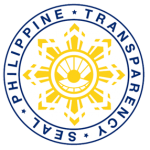LBC spearheads training on ‘Gold Colorimetric Sensing Technology’

With the objective of utilizing nanotechnology in applied biotechnology research, the Livestock Biotechnology Center (LBC), headed by Dr. Claro N. Mingala, conducted the training entitled “Gold Colorimetric Nanosensor Technology” last February 21-23, 2019 at the Livestock Innovations and Biotechnology (LIB) Complex, Philippine Carabao Center (PCC), National Headquarters and Gene Pool. Dr. Annabelle S. Sarabia, chief […]
PCC National Headquarters and Gene Pool passes IMS surveillance audit

The Philippine Carabao Center National Headquarters and Gene Pool (PCCNHGP) has once again validated its commitment to continual improvement by successfully passing the Surveillance Audit on its Integrated Management Systems (ISO 9001:2015; ISO 14001:2015; OHSAS 18001:2007). TUV SUD PSB Phils did the audit on February 18 and 19, 2019 confirming the agency’s compliance to customer […]
PCC ranks 3rd among Department of Agriculture – Attached Agencies for FY 2018 fund utilization

With a budget utilization rate (BUR) of 99.93%, the Philippine Carabao Center (PCC) is awarded as the 3rd top performer in terms of obligation among the seven attached agencies of the Department of Agriculture (DA) during the Fourth Quarter Assessment Meeting for Fiscal Year (FY) 2018 Fund Utilization held last February 8 at the Bureau […]
PCC renews its commitment to timely and accurate financial reporting

The Philippine Carabao Center (PCC) and representatives from its 12 regional centers gathered together to record, classify, summarize and interpret the results of the financial transactions for the year 2018 last January 21-25, 2019 at the Eusebio Hall. Dr. Arnel N. Del Barrio, PCC Executive Director, reminded everyone of the issuance of Presidential Directive No. […]











